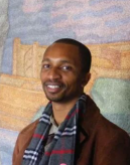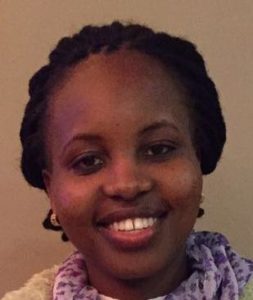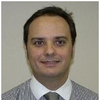Speakers
Data Santorino – CAMTech
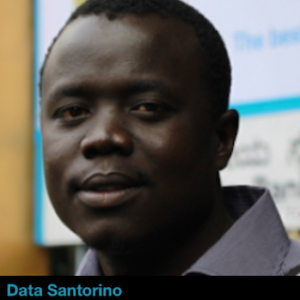
Dr. Data is the Uganda Country Manager for CAMTech Uganda. He is also aPediatrician and Lecturer in the Department of Pediatrics at Mbarara University of Science and Technology (MUST). Dr. Data has championed the creation of an Innovations Ecosystem that includes the monthly MUST Innovation Café, an Innovation office, a Co-Creation laboratory and a students’ innovation internship program that target medical technology development for Low and Middle Income Countries. He is collaboratively involved in the development of the Augmented Infant Resuscitator an add-on device to existing bag-valve-masks that monitors and provides instant feedback on resuscitation quality. Dr. Data has a wealth of experience in research including clinical trials.
June Madete – Kenyatta University
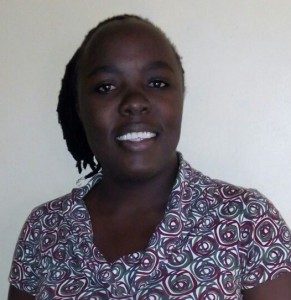
June Madete is a Biomedical engineer specializing in biomechanics, a researcher and senior lecturer at Kenyatta University with special interest and expertise in collections, analysis and interpretation of gait data using various motion analysis software and hardware. Her previous research involved combination of this technique with animal research in the field of euro science, video fluoroscopy, x-ray and CT data. In 2011-2012 , she did a study that looked at a specific group of patients who underwent total knee replacement, the study aimed at understanding the relationship between surgical accuracy and joint function. Much of her research is intimately linked to Biomechanics of the lower limb. She seeks to develop biomechanics within Kenya through knowledge and skill transfer with students, lectures and scientists across various sets of expertise.
Victor Konde – United Nation Economic Commission for Africa
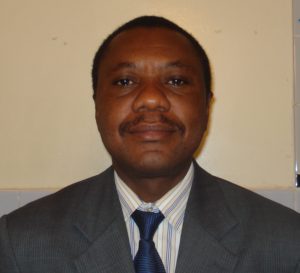
Victor Konde is an Economic Affairs Officer with UNCTAD’s Enterprise Policies and Capacity Building section, DITE. He is the founder of the African Technology Development Forum (ATDF, Geneva/Lusaka), the ATDF Entrepreneurship Hub Limited (Lusaka, Zambia) and the Zambian Society for Biochemistry and Molecular Biology and the managing editor of the ATDF Journal. He is a former researcher and Post-Doctoral Fellow of Harvard University’s Belfer Center for Science and International Affairs and an Associate of the Center for International Development. He has several years of industrial and teaching experience. He is a Fellow of the World Academy of Art and Science and holds a PhD (Biochemistry) from Brunel University, UK.
Kamau Gaghigi – University of Nairobi

Kamau Gachigi is the Founding Executive Director of Gearbox, a non-profit organisation that provides members with access to modern machines for prototyping and low volume manufacture, specialising in digital fabrication, including electronics PCB fabrication. Gearbox also avails training, and incubation/acceleration services in order to broaden access to manufacturing in Kenya. Dr. Kamau was a key consultant in the creation of a science curriculum for the Faculty of Arts and Science at the planned Aga Khan University in Arusha, and the principal consultant in the creation of an engineering curriculum for the planned Kiambu University of Technology and Innovation. He also holds two government appointments, one as Chairman of the Board of the National Industrial Training Authority and another on the Board of the Numerical Machining Complex, a State Corporation. Dr. Kamau is also a member of the Consultative Advisory Group of the Partnership on Applied Sciences, Engineering and Technology (World Bank and select African Governments). He previously served as the Director of the University of Nairobi Science and Technology Park and founded the Fab Lab at the University of Nairobi, another in a low income area in Nairobi and is setting up a third in a Kisumu. These digital fabrication centres are part of a global network founded at MIT that numbers over 1,000 Fab Labs worldwide, and represent a unique window into Industry 4.0 capabilities. Dr. Kamau holds a Ph.D. in Solid State Science from the Pennsylvania State University (USA) and worked in Japan for TDK in R&D for over two years after earning his doctorate. He holds a US patent for an invention and has around 10 academic and non-technical publications.
Arti Ahluwalia – University of Pisa
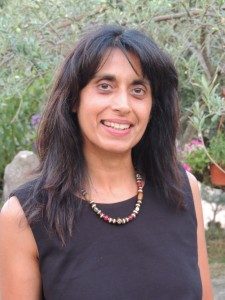
Arti Ahluwalia was born in Kenya and educated in the UK. She has a B.Sc. Physics from Univerisity of Bath, M.Sc. in Instrumentation and Analytical Science from the University of Manchester (formerly UMIST), UK and a Ph.D. in Bioengineering from the Polytechnic of Milan, Italy. Her research interests are in in-vitro models of integrative pathophysiology and associated innovative materials and advanced cell culture systems. She is also involved in capacity building in the field of Biomedical Engineering, in association with UNECA, FABLAB Pisa and ABEC (the African Biomedical Engineering Consortium).
Danilo De Rossi – University of Pisa
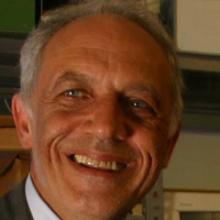
Danilo De Rossi was born in Italy in 1949. He received the Laurea degree in chemical engineering from the University of Genova, Genova, Italy, in 1976. From 1976 to 1981, he was a Researcher with the Institute of Clinical Physiology of the National Council of Research (C.N.R.), Pisa, Italy. He has worked in France, the U.S., Brazil, and Japan. Since 1982, he has been with the School of Engineering, University of Pisa, where he is currently a Full Professor of bioengineering. His current research interests include the physics of organic and polymeric materials and the design of sensors and actuators for bioengineering and robotics.
Robert Karanja – Villgro Kenya
Alice Ravizza – PGG Scientific
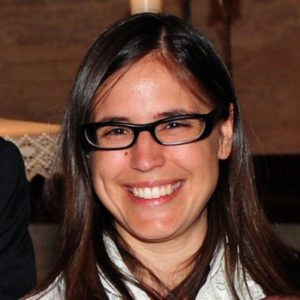
Dr. Alice Ravizza, regulatory consultant and R&D reviewer for medical devices, expert in implementation of Good Manufacturing Procedure and Quality Management System (ISO13485). Dr. Ravizza is involved in several CE marking processes (bone graft with animal origin substance for dental applications for Nobil Bio Ricerche s.r.l. (class III); SW stand-alone medical device, for the storage and diagnosis of ECGs at Biotechware s.r.l (class IIa); SW for Brainer s.r.l.(class I)). She holds courses on medical regulation for Universities and Technological Parks and will run sessions on biomedical device regulations at the summer schools. She will also be present at the SC telematics meetings.
Mentors
Dawit Haile – Addis Ababa University
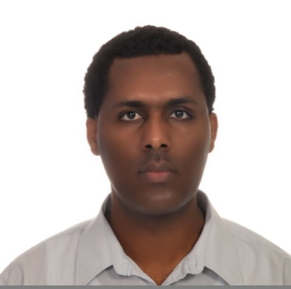
Dr. Dawit Assefa Haile is currently an Assistant Professor and Chair of the Biomedical Computing Division at the Center of Biomedical Engineering, Addis Ababa Institute of Technology, Addis Ababa University. His major research interests include signal and image analysis, color image processing, medical image analysis, scientific computing, optimization, and bioinformatics.
Muhammad Rushdi – Cairo University
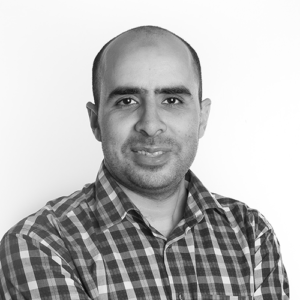
Muhammad A. Rushdi received B.Sc. (2001) and M.Sc. (2005) degrees in Biomedical Engineering and Systems and a B.Sc. degree in Mathematics (2003) from Cairo University in Egypt. He received M.Sc. (2012) and Ph.D. (2013) degrees in Computer and Information Science and Engineering from the University of Florida at Gainesville, FL, USA. He is currently an assistant professor of biomedical engineering at Cairo University. His main research interests are biomedical signal processing, medical imaging, machine learning, computer vision, and applied mathematics.
Wasihun Alemayehu – Jimma University
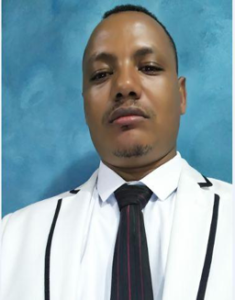
Wasihun Alemayehu obtained MSc degree from Catholic University of Leuven in September 2014 G.C. Area of specialization is industrial electronics engineering particularly intelligent electronics. MSc research topic was visitor recognition with kinect camera for museum exhibits.
Robert Ssekitoleko – Makerere University
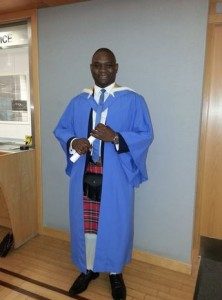
Dr Ssekitoleko completed his MEng Degree in Medical Engineering at Queen Mary University of London in 2007.He then held a Teaching Assistant position at the same university for one year. He then pursued his Doctor of Engineering Degree in Biomedical Engineering from University of Strathclyde, Glasgow which was awarded in 2014. He is very keen on building capacity in Biomedical Engineering in Uganda especially making appropriate links locally as well as internationally.
Edwin Khundi – Malawi University of Science and Technology
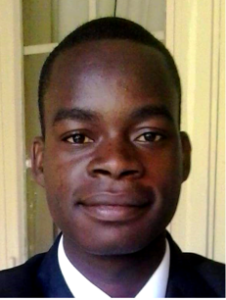
Edwin Andione Khundi is a head of engineering Department and Biomedical Engineering Lecturer at Malawi University of Science and Technology. He is a specialist is software development, design of device and rehabilitation of gait usign motion capture system. He is also currently studying his PhD at University of Strathclyde in KU. His research is focused on the design of auto-tuned adaptor for alignment of below knee prosthetic lims.
Daniel Atwine – Mbarara University of Science and Technology
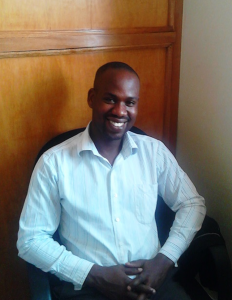
Dr Atwine Daniel is a dedicated African biomedical researcher that has been involved in Tuberculosis/HIV and Malaria International Clinical trials, diagnostic and Operational studies sponsored by EDCTP, MSF-France, St. George’s University of London, INTERTB, MRC and ANRS since joining MSF-Epicentre in 2007. As an alumni, has kept strong roots with in Mbarara University of Science and Technology (MUST) were he did his Bachelors in Medicine and Surgery. He has expertise in Epidemiology, Biostatistics, Infection control, Research initiation and management, Epidemiological programming and Data-analysis, research uptake, and evaluation, Clinical trial initiation/management, Science communication and Health Service Management and evaluation.
Nuriat Nambogo – Mbarara University of Science and Technology
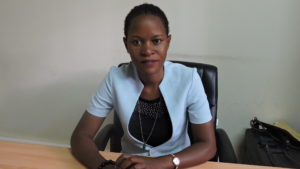
Nuriat heads the Innovation Support Office at the Consortium for Affordable Medical Technologies (CAMTech) at Mbarara University of Science and Technology (MUST). Her current position is the Research and Grants Manager. Nuriat is also Part of the select committee of nine members for the National ICT Initiative Support Program (NIISP) under the Ministry of ICT and National Guidance. She is an innovator with high expertise in innovation. Nuriat has served as a mentor and judge at different innovation competitions.
Mainen Moshi – Muhimbili University of Health and Allied Science
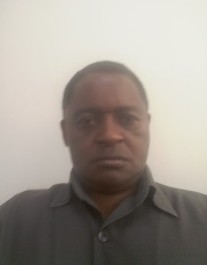
Mainen Moshi graduated with a Bachelor of Pharmacy in 1984 at the Division of Pharmacy of the Faculty of Medicine, University of Dar es Salaam. He received a PhD in cardiovascular pharmacology at the Royal College, University of Strathclyde, Glasgow, in 1991. He is currently the Director for Undergraduate Education of the Muhimbili University of Health and Allied sciences. He is currently a member of the TFDA Human Medicines Registration Committee, Member of the Editorial Board of the Tanzania Journal of Health Sciences. At International level he has served as the WHO/TDR Good laboratory Practice Trainer and he currently an Associate Editor of BMC Complementary and Alternative Medicine.
Mannan Mridha – Royal Institute of Technology
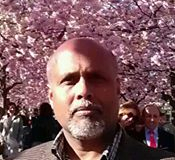
Mannan Mridha develops e-Health and e-Learning solutions to empower the disadvantaged groups in the developing countries. Our long-term goal is to develop better diagnostic methods for healthcare which shall be available to more patients. With more advanced technical solutions and methods it shall be easier for doctors to make a diagnosis, even for doctors without a long experience in the field.
David Malombe – Technical University of Mombasa
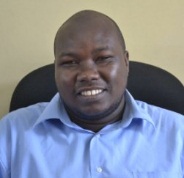
Professional Back Ground
- Jomo Kenyatta University Of Agriculture And Technology – Award: Master Of Science In Mechanical Engineering (Industrial Engineeering Option)
- Egerton University – Award: Bachelor Of Industrial Technology (Medical Engineering Option)
- Mombasa Polytechnic – Award: Diploma In Medical Engineering
Area of Research
- Facilities maintenance management in major public and private hospitals in Kenya.
Philippa Makobore – Uganda Industrial Research Institute
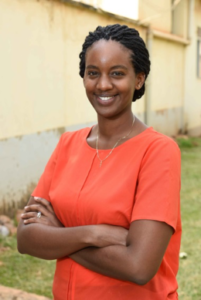
Philippa Makobore is the Department Head of the Instrumentation Division at the Uganda Industrial Research Institute. Her research interests are bioinstrumentation and non-invasive medical device design for low resource settings.
Mathew Ocheng – Uganda Industrial Research Institute
Mathew Ocheng is the lead Hardware Design Engineer at Uganda Industrial Research Institute. He holds a BSc. Degree in Electrical Engineering from Makerere University. He has 5 years of experience in Embedded System Application Design, circuit design, analysis, and production of printed circuits boards (PCBs). His research interest is in design of affordable medical devices for low resource settings.
Paul Niyitanga – Uganda Industrial Research Institute
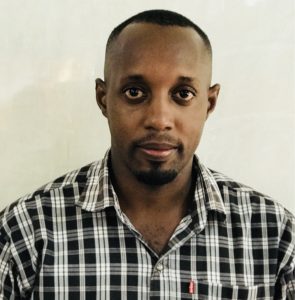
Paul Niyitanga is an hardware design engineer specializing in the design and development of embedded systems. Lately I have been focusing on designing and developing devices and equipment for the healthcare sector of Uganda. My research topic is development of an affordable and context appropriate infusion device for Uganda.
Hudson Kagoda – Uganda Industrial Research Institute
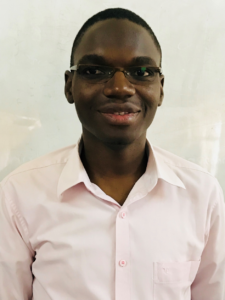
Hudson Kagoda is a mechatronic Engineer with Uganda Industrial Research Institute. He holds a multidisciplinary BSc. degree in Mechatronic engineering from the Asia Pacific University, Malaysia. Hudson has vast experience in circuit design, simulations and prototyping, CAD, CAM and DSP. He is currently working on design of Health technologies for resource limited settings.
Miriam Wegoye – Uganda Industrial Research Institute
Andres Diaz Lantada – Universidad Politécnica de Madrid

Andres Díaz Lantada is PhD in Industrial Engineering and works as Associate Professor in the Mechanical Engineering Department of Universidad Politécnica de Madrid. He leads the UPM “Product Development Lab” and is focused on the development of innovative biomedical devices with enhanced capabilities thanks to the incorporation of special geometries by means of additive manufacturing strategies and to the employment of smart materials. Reinventing biomedical engineering following open-source and collaborative design methodologies and via educational innovation is his main current research topic.
Enrque Chacon Tanarro – Universidad Politécnica de Madrid
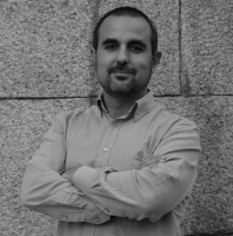
Enrique Chacón Tanarro is PhD in Industrial Engineering and works as Associate Professor in the Mechanical Engineering Department of Universidad Politécnica de Madrid. His research activities are linked to several fields of Mechanical Engineering, including most areas of tribology and contact phenomena, machine performance assessment and systematic product development applied to energy engineering, transport and health. He is very active on project-based learning following the CDIO approach.
Juan Manuel Munoz Guijosa – Universidad Politécnica de Madrid
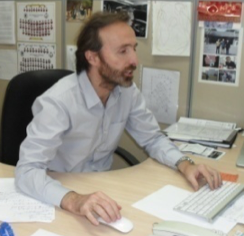
Juan Manuel Muñoz Guijosa is PhD in Industrial Engineering and works as Associate Professor in the Mechanical Engineering Department of Universidad Politécnica de Madrid. His research activities are linked to several fields of Mechanical Engineering, including vibrations theory, composite materials, microsystem technology and systematic product development. He is very active in the field of project-based learning and leads UPM’s “Composites and Nanocomposites Lab”.
Juan de Juanes Marquez – Universidad Politécnica de Madrid
Philip Kangogo Talam – University of Eldoret
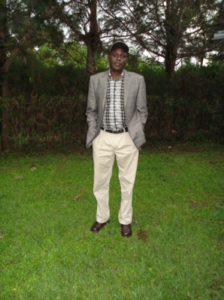
NAME: Philip Kangogo Talam
LUCTURER: Univeristy of Eldoret: School of engineering
DOCTOR OF PHILOSOPHY RESESCH AREA: Semiconductor physics with a bias in digital electronics signal processing, micro processors and instrumentation.
Akinniyi Adediran Osunto – University of Lagos
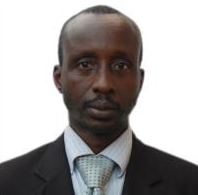
Akinniyi Osuntoki was the Acting Head of the Department of Biomedical Engineering, College of Medicine, University of Lagos (2012-2014). He is an Associate Professor of Biochemistry. As acting departmental Head, he built a multidisciplinary team of engineers, clinicians, medical scientists and others to run a postgraduate degree programme. He currently serves as the Site Principal Investigator for the NIH/FIC D43 grant “Developing Innovative Interdisciplinary Biomedical Engineering Programs in Africa” and is a co-investigator on the NIH/FIC-funded Medical Education Partnership Initiative in Nigeria (MEPIN 2) grant “ Building Research And Innovation in Nigeria’s Science (BRAINS) which has Biomedical Engineering as one of the focus research areas.
Carmelo De Maria – University of Pisa
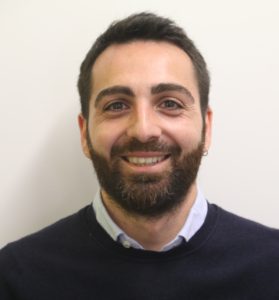
Carmelo De Maria is an assistant professor of bioengineering in the Department of Ingegneria dell’Informazione and affiliated with the Research Research Center “E. Piaggio” of University of Pisa. He is a guest professor in bioengineering at Addis Ababa University, and member of the African Biomedical Engineering Consortium secretariat.
His research interests are on additive manufacturing/rapid prototyping technologies, with a particular focus on biofabrication.
Licia Di Pietro – University of Pisa
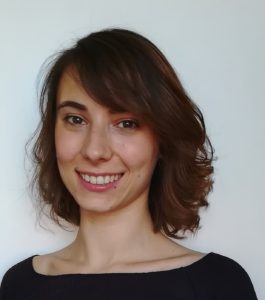
Licia Di Pietro is currently a PhD Biomedical Engineering Student at Research Centre E. Piaggio of University of Pisa, Italy. She received the Bachelor and Master Degree in Biomedical Engineering from University of Pisa, Italy, in 2014 and 2017, respectively. In 2016 she has enrolled an Erasmus for Traineeship program at Hilditch Group at Malmesbury, England, working on her Master Thesis project entitled “Different approaches to improve healthcare in Africa through Biomedical Engineering”. During this period, she spent one month in Kampala, Uganda, working as volunteer with Amalthea Trust Foundation, to help provide for the sustainable maintenance of medical equipment through the provision of training programs for the recipients, including test equipment and workshop facilities. Her research interest includes Global Health with particular attention to developing countries. She is working on manufacturing of open-source and low cost medical devices, compliant with the International standards to assure the safety, quality and performance of medical devices.
Janno Torop – University of Tartu
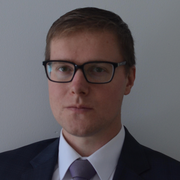
Janno Torop received his PhD from University of Tartu in 2012. He has been developing smart electromechanical actuators in University of Tartu, Institute of Technology since 2006. He is currently a research scientist of Institute of Technology, University of Tartu. In 2013 he joined as a postdoc researcher to Biosensors and Bioelectronics Centre in Linköping University, Sweden. His research interests are smart electromechanical polymeric actuators and energy conversion devices utilizing microporous carbons as active electrode material.

